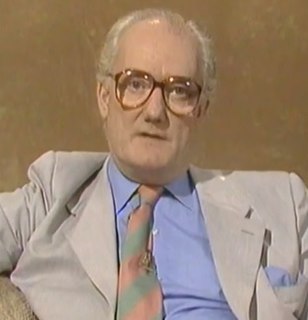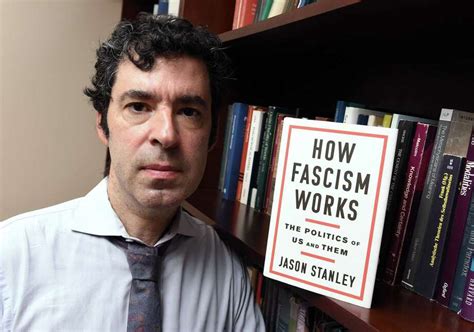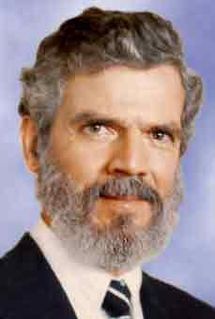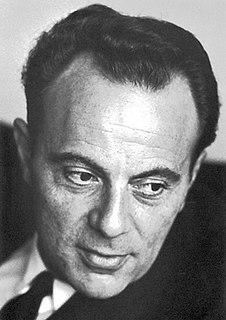A Quote by Bryan Magee
The basic drive behind real philosophy is curiosity about the world, not interest in the writings of philosophers. Each of us emerges from the preconsciousness of babyhood and simply finds himself here, in it, in the world. That experience alone astonishes some people. What is all this - what is the world? And what are we? From the beginning of humanity some have been under a compulsion to ask these questions, and have felt a craving for the answers. This is what is really meant by any such phrase as 'mankind's need for metaphysics.'
Related Quotes
Some philosophers are drawn to the subject [of philosophy] via their interest in the nature and structure of the world external to us. Others are drawn to it by an interest in the capacities that make humans distinctive in the world. I am a philosopher of the latter sort. My work thus far has been clustered around the nexus of knowledge, communication, and human action.
To gauge the understanding and insight that metaphysics provides is to ask whether, in the final analysis, it helps us to cope with our world and harmonize our existence with nature, humanity, and ourselves, and leads to greater freedom and self-realization. Metaphysics is only the beginning. The end is human progress.
I am not sure just what Marx had in mind when he wrote that "philosophers have hitherto only interpreted the world in various ways; the point is to change it." Did he mean that philosophy could change the world, or that philosophers should turn to the higher priority of changing the world? If the former, then he presumably meant philosophy in a broad sense of the term, including analysis of the social order and ideas about why it should be changed, and how. In that broad sense, philosophy can play a role, indeed an essential role, in changing the world.
One should not understand this compulsion to construct concepts, species, forms, purposes, laws ('a world of identical cases') as if they enabled us to fix the real world; but as a compulsion to arrange a world for ourselves in which our existence is made possible:-we thereby create a world which is calculable, simplified, comprehensible, etc., for us.
The people in the world, and the objects in it, and the world as a whole, are not absolute things, but on the contrary, are the phenomena of perception... If we were all alike: if we were millions of people saying do, re, mi, in unison, One poet would be enough... But we are not alone, and everything needs expounding all the time because, as people live and die, each one perceiving life and death for himself, and mostly by and in himself, there develops a curiosity about the perceptions of others. This is what makes it possible to go on saying new things about old things.
I think there's some pretty amazing language in the Bible. The thing that's always been interesting to me about religion is that compared to the more modern spirituality, the West Coast pseudo-Buddhist thing that people go for these days, actual Buddhism and Islam have been looking at these philosophical questions, at really hard questions, for a long time. There's a lot of stuff that philosophy doesn't talk about, and in the secular world, a lot of times, people don't talk about these ideas, and that was always really interesting for me.
Think of your career as your ministry. Make your work an expression of love, in service to mankind. Within the worldly illusion, we all have different jobs. Some of us are artists, some of us are business people, some of us are scientists. But in the real world that lies beyond all this, we all have the same job: to minister to human hearts.
The world of money, of numbers and stock markets and interest rates and credit cards, seems on the surface about as far as it could be from the world of spirituality, of seeking meaningful answers to the big questions of life. ... But these two worlds must flow in and out of each other, because it takes both money and spiritual understanding to sustain it. Truly speaking, what determines where our money with its awesome power will go, and what it will do for ourselves and others? If we listen, those answers come from the center of our being, from who we really are.
There’s a real question as to what beauty is and why it’s important to us. Many pseudo-philosophers try to answer these questions and tell us they’re not really answerable. I draw on art and literature, and music in particular, because music is a wonderful example of something that’s in this world but not of this world. Great works of music speak to us from another realm even though they speak to us in ordinary physical sounds.
The game was that of continually inventing a possible world, or a piece of a possible world, and then of comparing it with the real world... a race without end... What mattered more than the answers were the questions... For me, this world of questions and the provisional, this chase after an answer that was always put off to the next day, all that was euphoric. I lived in the future... I had turned my anxiety into my profession.
I don't like realism. We already know the real facts about li[fe], most of the basic facts. I'm not interested in repeating what we already know. We know about sex, about violence, about murder, about war. All these things, by the time we're 18, we're up to here. From there on we need interpreters. We need poets. We need philosophers. We need theologians, who take the same basic facts and work with them and help us make do with those facts. Facts alone are not enough. It's interpretation.
Phonogram was explicitly about our world. It’s a fantasy which is happening around us all, unnoticed except for those who’ve fallen into its world. In a real way, it’s real. Conversely, W+D is much more overt. The appearance of the gods changes the world, and has changed the world going back. There’s the strong implication that certain figures in our world simply didn’t exist in The Wicked And The Divine‘s world, because they were replaced by a god.
































